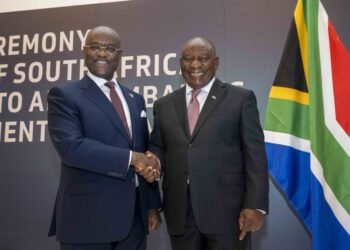Tunisia’s President Kais Saied dismissed the prime minister and suspended the parliament following thousands of protesters on Sunday, July 25.
According to Aljazeera, “on Sunday, police used pepper spray against protesters who threw stones and shouted slogans demanding that Prime Minister Mechichi quit and parliament be dissolved.”
There were protesters, majority being young Tunisians, who were for and against the president’s move.
Hichem Mechichi, who has the backing of the largest party in parliament, Ennahda, is said to have had a persistent clash with Saied.
BBC reported that the PM had previously dismissed the health minister, “ally of the president” which prompted Saied to hand the management of covid crisis over to the military.
Covid-related deaths flared up last week, passing 300 in a one day period. Tunisia has one of the highest per capita death rates in the world.
It is said that the way the government has been managing the recent spike in covid cases has added to general unrest over the nation’s economic and social disruptions.
The president announced he would assume the executive authority and warned against use of weaponry protest.
Through a televised address, he said, “We have taken these decisions… until social peace returns to Tunisia and until we save the state,” according to BBC.
“I warn any who think of resorting to weapons … and whoever shoots a bullet, the armed forces will respond with bullets,” he added.
On Monday, Al Jazeera TV, which has been viewed as sympathetic to Ennahda, said security forces had raided its offices in Tunis, unplugging all equipment and telling staff to leave.
‘Coup Accusation’
Saied has said he will now govern alongside a new PM, with parliament suspended for 30 days.
He was hence accused by Rached Ghannouchi, Parliament speaker, of launching “a coup against the revolution and constitution.”
Talking to the Reuters news agency, Ghannouchi, chairman of Ennahdha party said, “We consider the institutions to be still standing and supporters of Ennahdha and the Tunisian people will defend the revolution.”
“In the early hours of Monday, Rached Ghannouchi tried to get into the legislature in Tunis and he was blocked by those who supported Saied’s move,” BBC reported.
“He responded with a sit-down protest with his own loyalists.”
In Tunisia, both the president and parliament are elected by popular vote and under the constitution, the president oversees only the military and foreign affairs.






























































